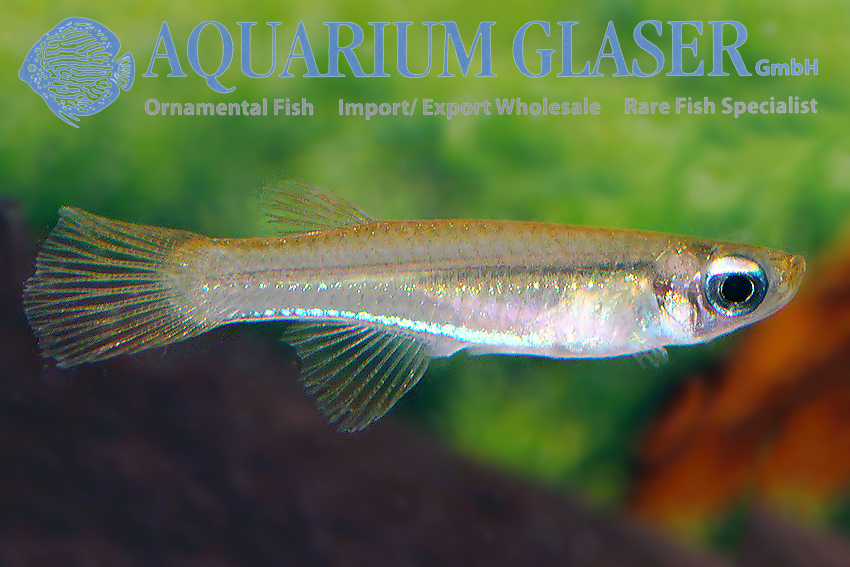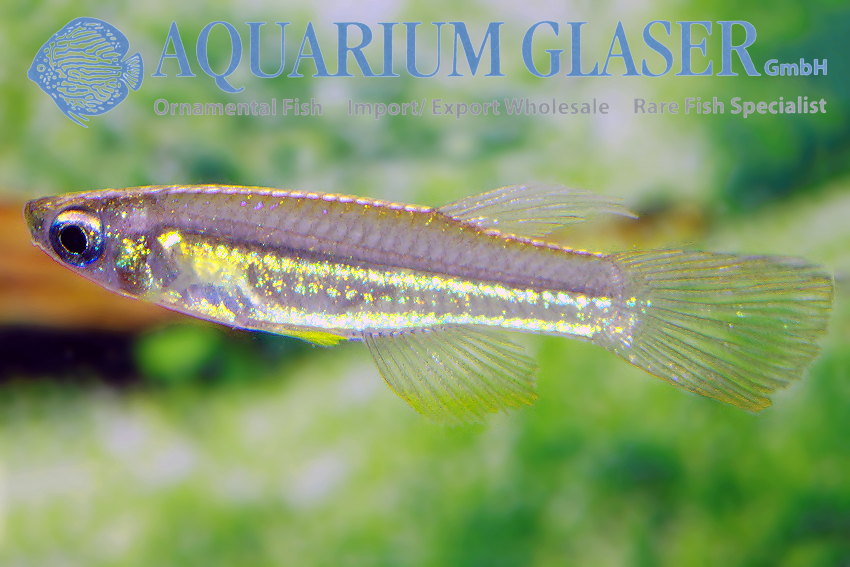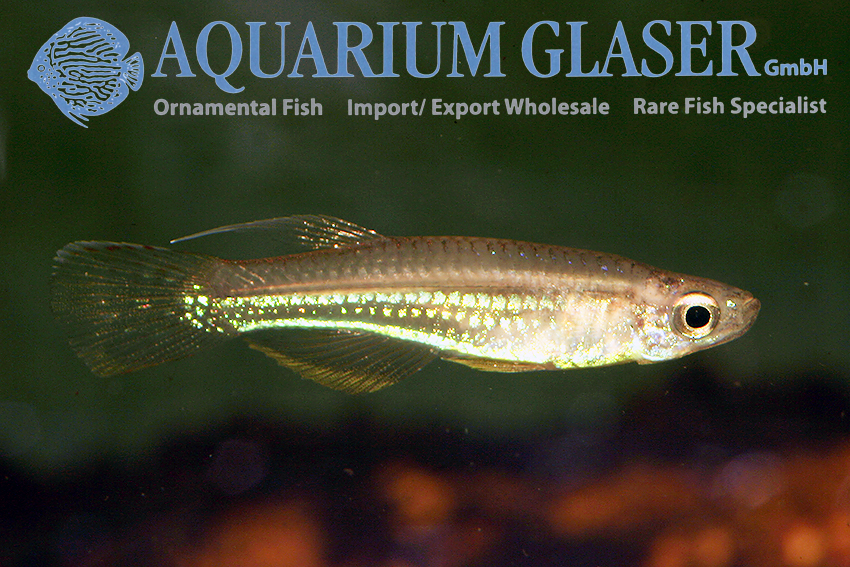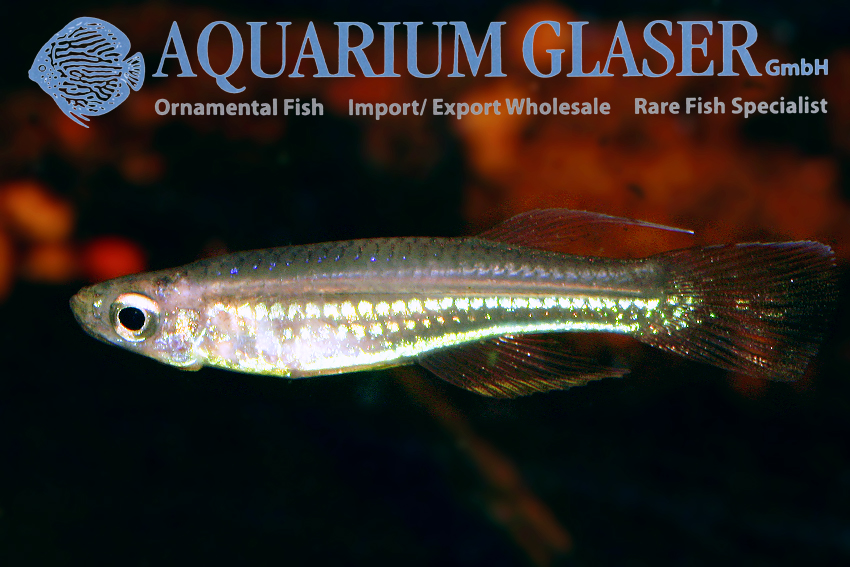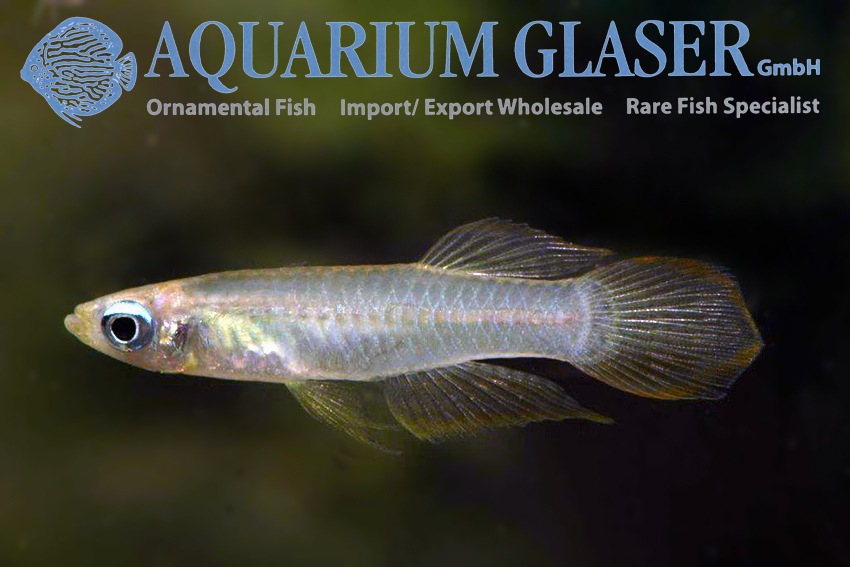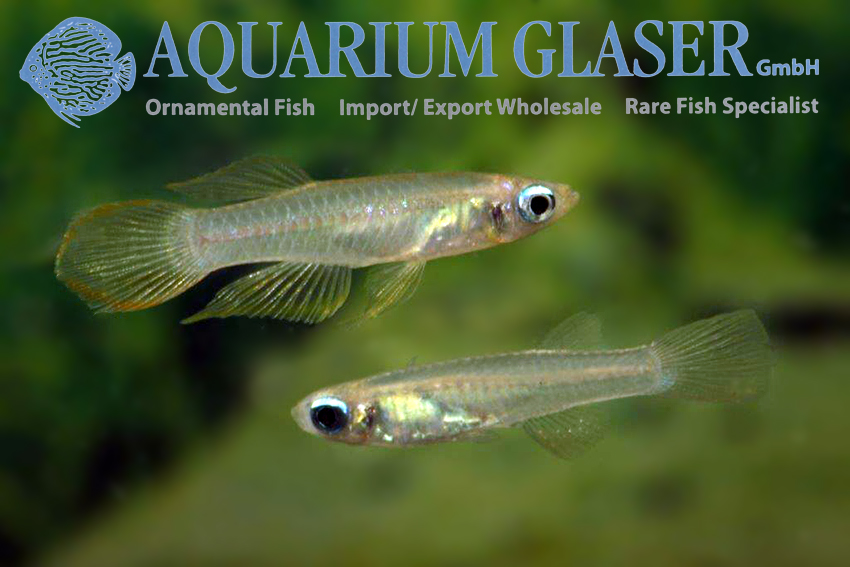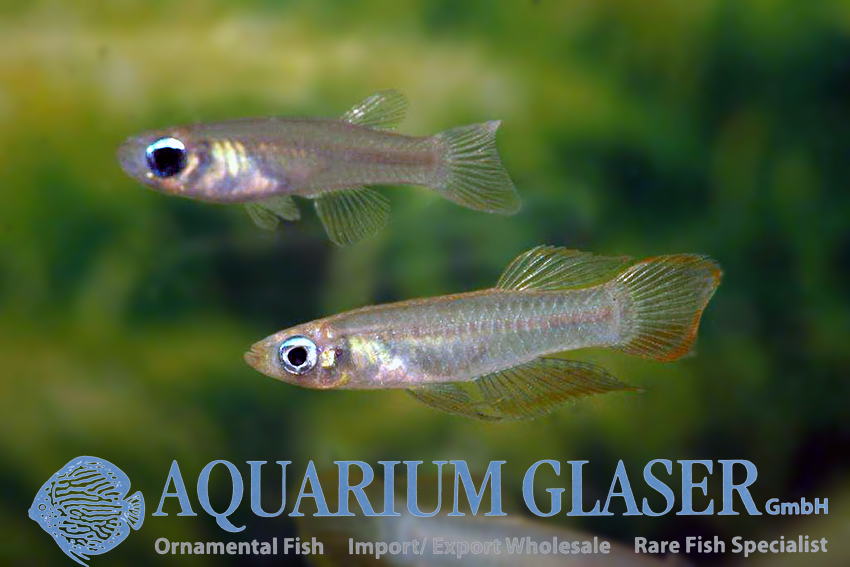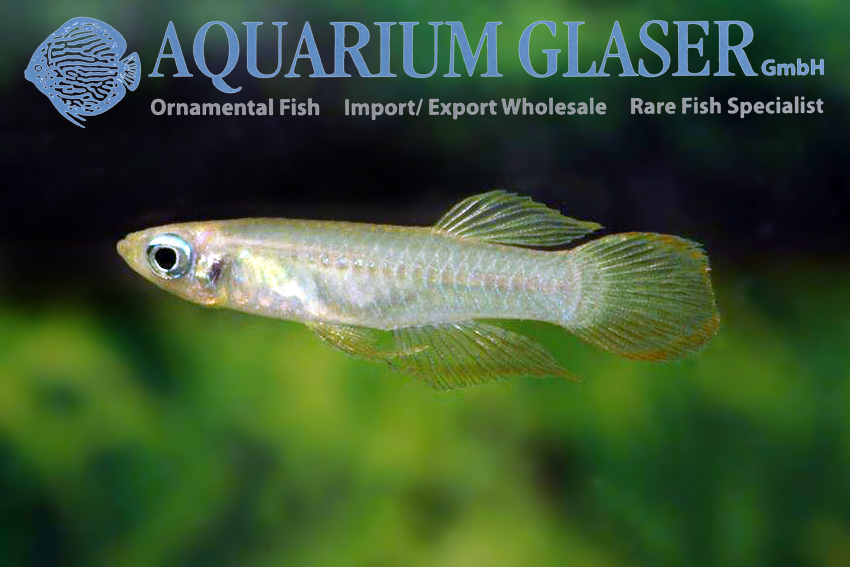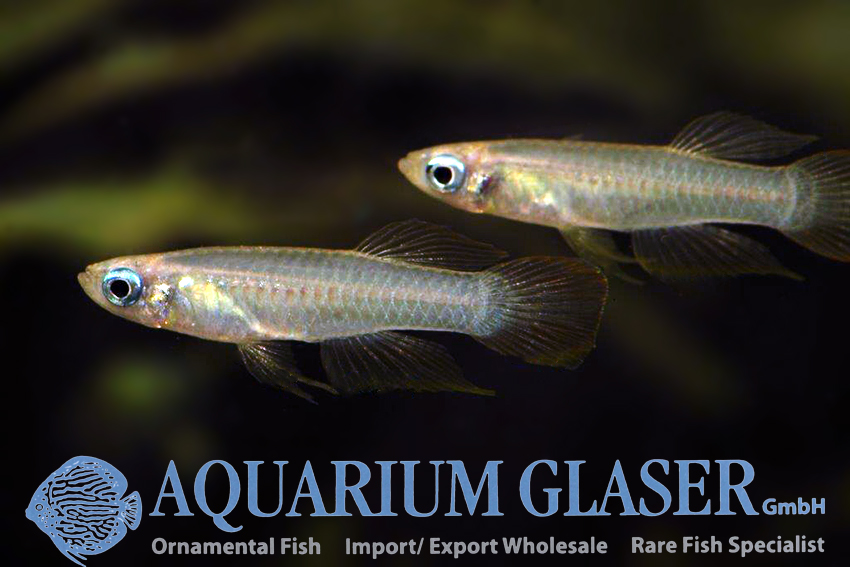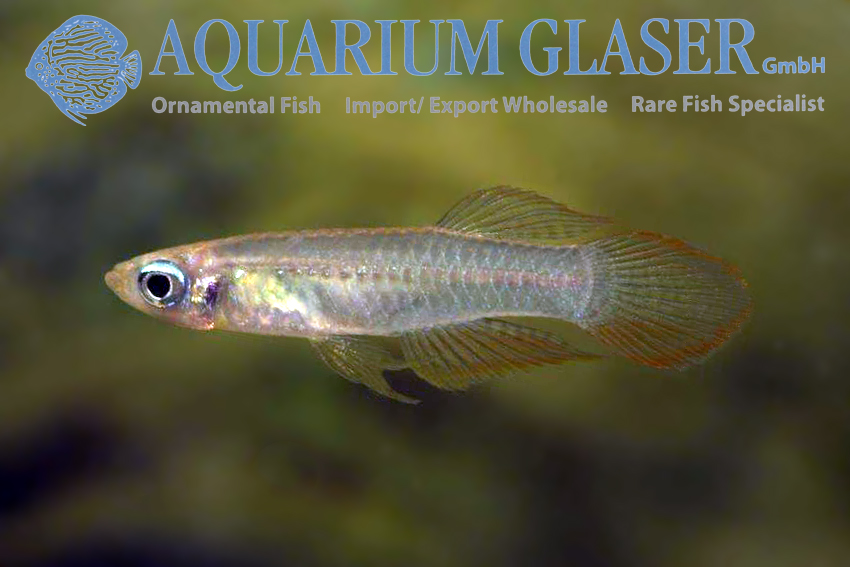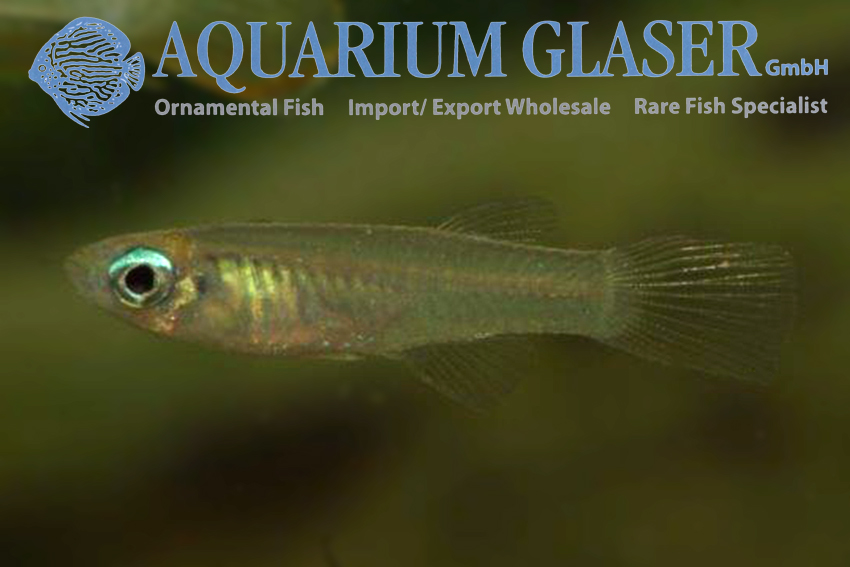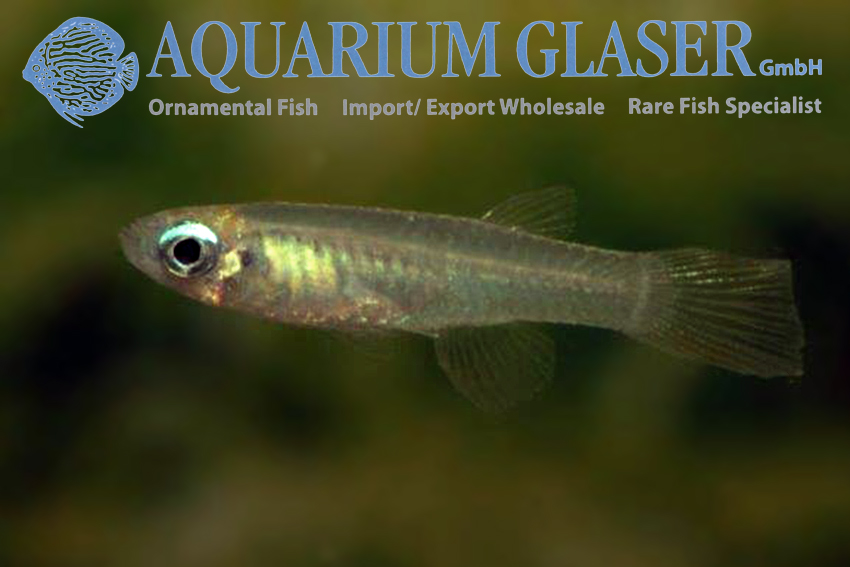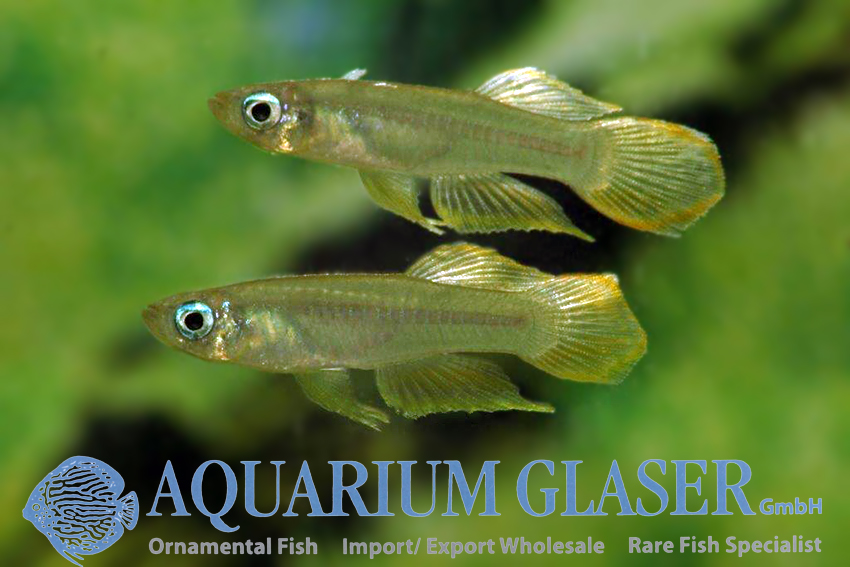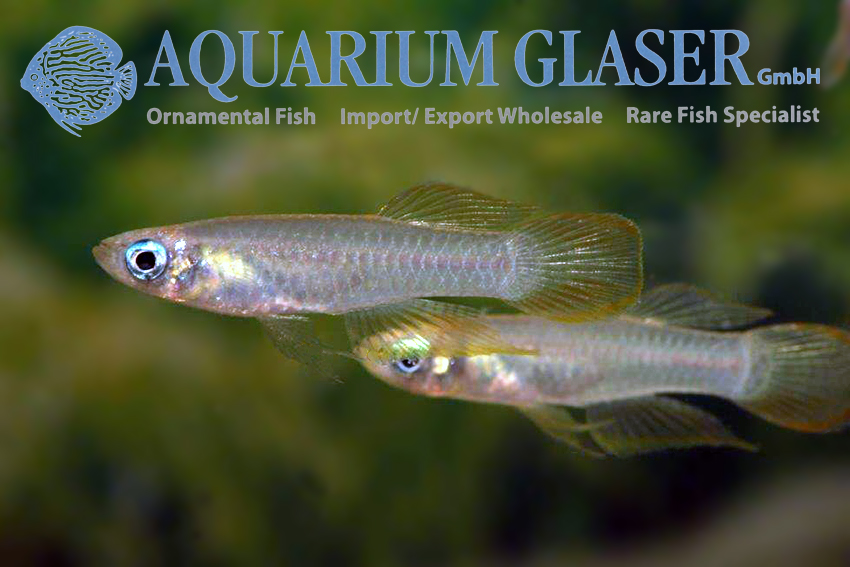Currently we were able to import once more one of the most beautiful lampeyes from Nigeria: Aplocheilichthys luxophthalmus. Those who follow the splitting of the genus Aplocheilichthys place the maximum 3 cm long fish in the genus Poropanchax.
A. luxophthalmus is a schooling fish that should never be kept in groups with less than ten specimens. They are absolutely peaceful against all other fish. Males and females can be easily told apart by the shape of the anal fin (see photos). They spawn in fine plants, the eggs need 10 – 14 days to hatch.
Experienced aquarists prefer to keep this species in medium hard to hard water for the fish are much hardier under these conditions. Often a slight addition of salt is recommended (a teaspoon full of salt on 10 litres of water). This is not necessary, but has the advantage that artemia nauplii, which form an important part of the diet of these tiny fish in the aquarium, stay longer alive.
The brilliant shining colours of the fish are best shown in dark aquaria. Alder cones make the water brown (like a dark tea) and also have a nice side affect, for they are strengthening the fish’s immune system. The water temperature should lie between 22 and 28°C.
For our customers: the fish have code 301402 on our stocklist. Please note that we exclusively supply the wholesale market.
Text & photos: Frank Schäfer





